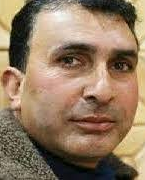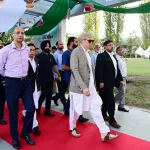GEO POLITICS
The Middle East has supposedly gone from an escalating war to a fragile ceasefire. The ceasefire apparently is holding and the 12 Day War between Israel and Iran seems to have been concluded – for now. Meanwhile, US president Donald Trump, Israel’s Prime Minister Benjamin Netanyahu and Iran’s leaders have all claimed that the truce in the conflict has come on their terms.
Late on Saturday night, the US struck Iran’s nuclear facilities at Fordow, Natanz and Isfahan, “completely obliterating” them as Trump’s termed it. Iran struck back on Monday, firing missiles at the largest US airbase in the Middle East, Al Udeid in Qatar. It seemed as if the Middle East was setting the stage for a longer war.
For a long time, Israel has claimed that Iran is number one existential threat to it but it has never attacked nuclear facilities of the country before. On June 13, it is said to have bombed the surface installations of the Natanz fuel enrichment plant and the Isfahan nuclear technological complex. Iran retaliated by launching drones and missiles at Israel. Israel had struck nuclear installations in Syria and Iraq before but it has now displayed that it can operate at a broader level if necessary.
Also, Tel Aviv withstood the international blame that its mission was not legal at all. Israel called it anticipatory self-defence, but there is no consensus that Iran is looking to develop a nuclear bomb or that it intended to use it against it, Israel. “I speak with world leaders and they are very impressed by our determination and the achievements of our forces,” Israel’s premier Netanyahu said on June 18.
Israel did convince the US to enter a limited Middle Eastern war it has started. In the wars in 1967 and 1973, America had come up with material support to Israel when it was attacked but had not helped it with direct operational involvement. Netanyahu thanked Trump for “standing alongside us”.
The operation ‘Rising Lion” against Iran occurred following conflicts that Israel has waged against Iran’s regional allies – the Houthis in Yemen, Hamas in Gaza and Hezbollah in Lebanon.
Israel has largely damaged surface targets in Iran, and the US claims to have destroyed underground nuclear facilities. However, while satellite photography shows that their missiles hit their mark, there is no independent confirmation available on what was destroyed.
Notably nothing is known with respect to the whereabouts of 400 kilogrammes (880 pounds) of highly enriched uranium that the IAEA has said Iran now possesses. Mohammad Eslami, the head of Iran’s Atomic Energy Organisation, implied the nuclear programme would be unharmed. “Preparations for recovery had already been anticipated, and our plan is to prevent any interruption in production or services,” he said on Tuesday in a statement carried by the semi-official Mehr news agency.
Meanwhile, confusion is still there over the source of two ballistic missiles hitting Israel on Tuesday morning, after the ceasefire took effect. Iran’s government officially denied having launched the missiles, something perhaps Israel is not prepared to subscribe to.
What Israel and Iran have agreed to is a ceasefire, not peace. Thus another strike on Iran cannot be dismissed as something impractical. Further, these two countries do not trust each other; a miscalculation from either side is likely to trigger another offensive. The fragile ceasefire requires commitment and meticulous care on both sides.
Speaking of Iran’s nuclear programme, experts opine there are two possible paths– new UN inspections of Iranian nuclear facilities and a renewed treaty with Iran. For that matter, European powers can have a greater role. Three of them — the United Kingdom, France and Germany– met Iranian Foreign Minister Abbas Araghchi on June 20, along with the European Union’s foreign policy chief, Kaja Kallas, in a bid to prevent US strikes.
Those efforts did not succeed though. Agreed that the EU cannot alone should be unable to bring about a compromise with Tehran it can ensure that the latter is not isolated to an extreme level only to put the Middle East on the line sooner or later.
“Iran will try to involve the Europeans diplomatically by proposing enhanced monitoring and making commitments in its nuclear programme,” Ioannis Kotoulas, an adjunct lecturer in geopolitics at Athens University, stated.
“The US could accept a peaceful nuclear programme – [US Secretary of State Marco] Rubio has already said so. The likelihood is that the US won’t try to force regime change,” he said. “Europe is now Iran’s only way out. Russia is unreliable.”
But Israel has on previous occasions sought to prevent any nuclear deal between the West and Iran; and is perhaps not going to agree with a new deal. But will Iran accept a fresh compromise, after the US pulled out of its previous nuclear deal with Tehran, and joined Israel in bombing Iranian nuclear facilities? The question is hard to answer.
“That really depends on dynamics within the country and how any climb-down is phrased, but there have already been calls to cease uranium enrichment from activists within the country,” Ali Ansari, a professor of Iranian history at St Andrews University, said.
As of now, Iran looks resolved in its quest for its nuclear programme. The country’s national interests come first. In the meantime, Trump stated on Tuesday on social media that he would not let Iran’s nuclear programme to begin again.
If that point of conflict lasts and remains unaddressed to the utter satisfaction of both sides, another round of strikes and counter strikes that brought in the US cannot be disregarded. It will be only a matter of time that the scenario could change, pushing the region to the brink of devastation once again.
Moreover, as long as the distrust and animosity remains between Israel and Iran, fears of a catastrophe are unlikely to erase. Israel has been fighting against Iran allies in the region. With the suspected assistance from Tehran, these allies are seeking to cut Israel to size. This is where Tel Aviv sees a source of constant tension and threat for its existence. Unless, Israel and Iran address each other’s concerns diplomatically, any truce — between them– has short shelf life.
(Author is RK columnist and teacher by profession. Feedback: [email protected])








